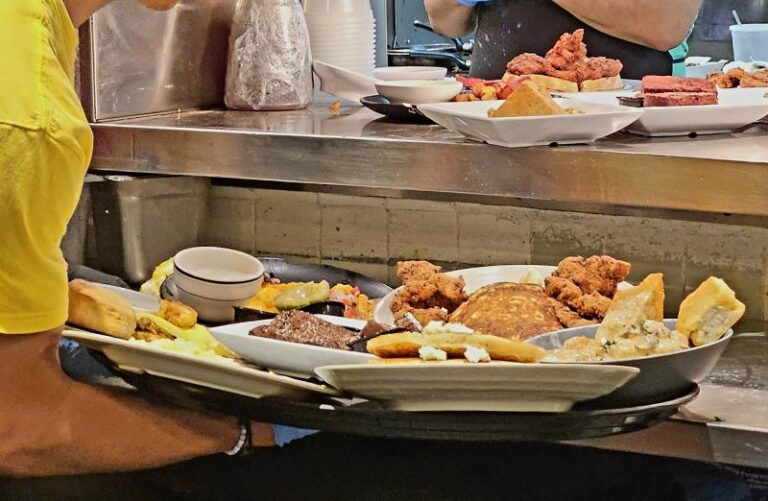I've been getting a lot of emails and comments lately about celebrity chef Alex Guarnaschelli's new reality show, Ciao House, which airs on FoodTV. The concept of the show is similar to last year's Netflix show, Pressure Cooker (won by Delaware chef Robby Jester). In Ciao House, several chefs (and a few aspiring chefs) live together, cook together, and compete in assigned challenges. Along the way, they form alliances and become friends, but the biggest challenge is that at the end of every episode, one of them must be voted out. If you love cooking and being active in the kitchen, this tension is what makes TV great.
I enjoy some of the little exchanges with Chef Alex, centered around one of the contestants who immediately set himself apart from the others: “I don't like melted cheese on top.” Incidentally, the show is filmed in Italy and has an Italian cuisine theme. This talented young man stuck to his rather unconventional culinary beliefs throughout the show and, although he didn't win, he was one of the finalists.
The online debate was about chefs who cook for themselves and not for their customers. I opined that to be successful, this curmudgeon would have to open his own restaurant and build a following that appreciates his unconventional approach to cooking. The conversation then shifted to the issue of egos in commercial kitchens, which are often a major factor in conflicts between the front of house (servers) and back of house (cooks). Ask any restaurateur; these protracted disputes are not uncommon.
Figuring out the source of these problems can be emotional when a chef's ego is hurt or challenged. Restaurateurs must figure out how to control these skirmishes and, in some cases, keep the restaurant running smoothly. Examples of this can be seen in a surprising number of episodes of “Restaurant Impossible,” in which celebrity chef Robert Irvine tries to save a struggling restaurant. Often, a server will return a dish to the kitchen with a customer complaint attached (too hot, too cold, too salty, etc.). Instead of remaking the dish and moving on, the chef or cook will lash out at the server (often within earshot of the dining room). Standing squarely between the cook and the customer, the server is understandably hurt and angry.
In my experience, much of the arrogance sometimes present in the kitchen can be traced back to the concept that started this whole article: FoodTV and the celebrityization (these are my words, but you know what I mean) of chefs and kitchen staff. Sure, FoodTV and other shows have done a great job of highlighting the talents of many great cooks, but at the same time, they have also contributed to wildly inflated egos.
The day-to-day operations of a real restaurant kitchen are different from what you see on reality TV. Most of what TV producers ask for on camera just don't work on a busy weekend night. The key is getting orders in and out as quickly as possible while maintaining quality, safety, and presentation. No easy job.
When I interview chefs, restaurateurs and others for this column and my Beach Eats radio show, I often compare the work of a professional chef to my previous work as a recording studio owner and recording engineer. In the studio, you bring together a variety of personalities — musicians, songwriters, producers, technicians — to create an end product that everyone loves. It's not that different from a restaurant kitchen — there's yelling, backstabbing, ego-driven tirades.
As a music engineer and occasional producer, I try to keep my focus on one common goal: an end result that we can all be proud of. Similarly, the best restaurateurs and managers often use the same strategy: they create standards and benchmarks to hold their chefs (producers) and line cooks (musicians) accountable. They respect everyone's feedback while slowly working their way toward the end result: a well-crafted dish (or an impressive musical recording).
Talent, passion, and of course, self-worth are essential ingredients to running a successful restaurant business. Smart restaurateurs know they can't do it alone. For better or worse, they need a team to do their job. As with any creative endeavor, the answer is to gently guide different talents toward an outcome that benefits everyone.


